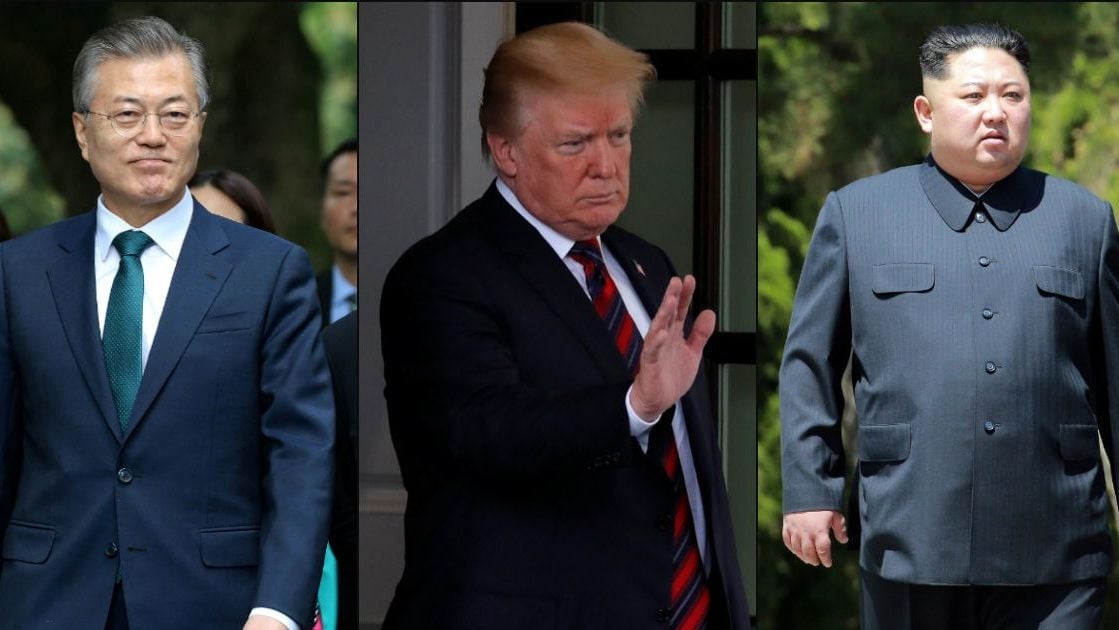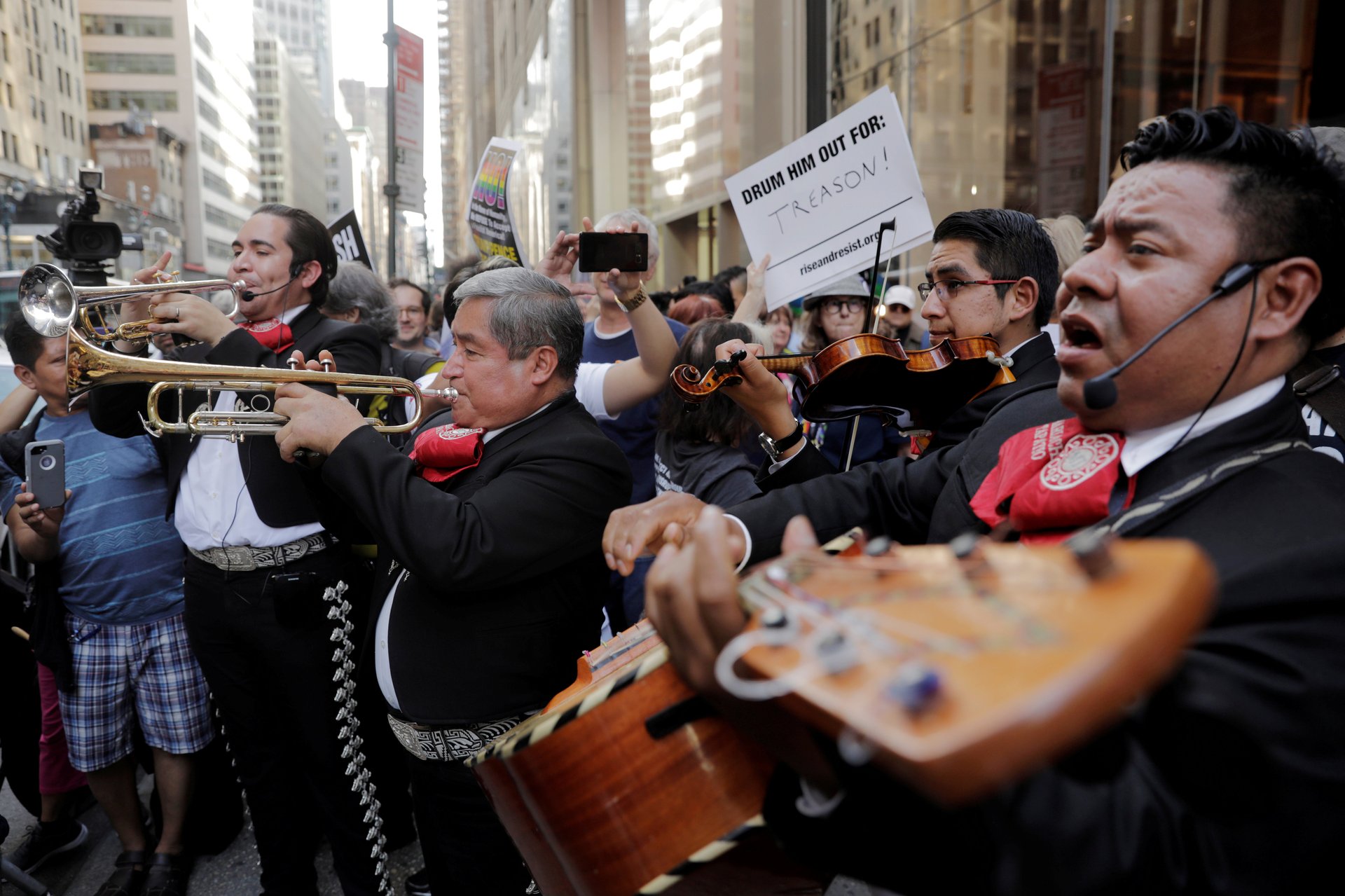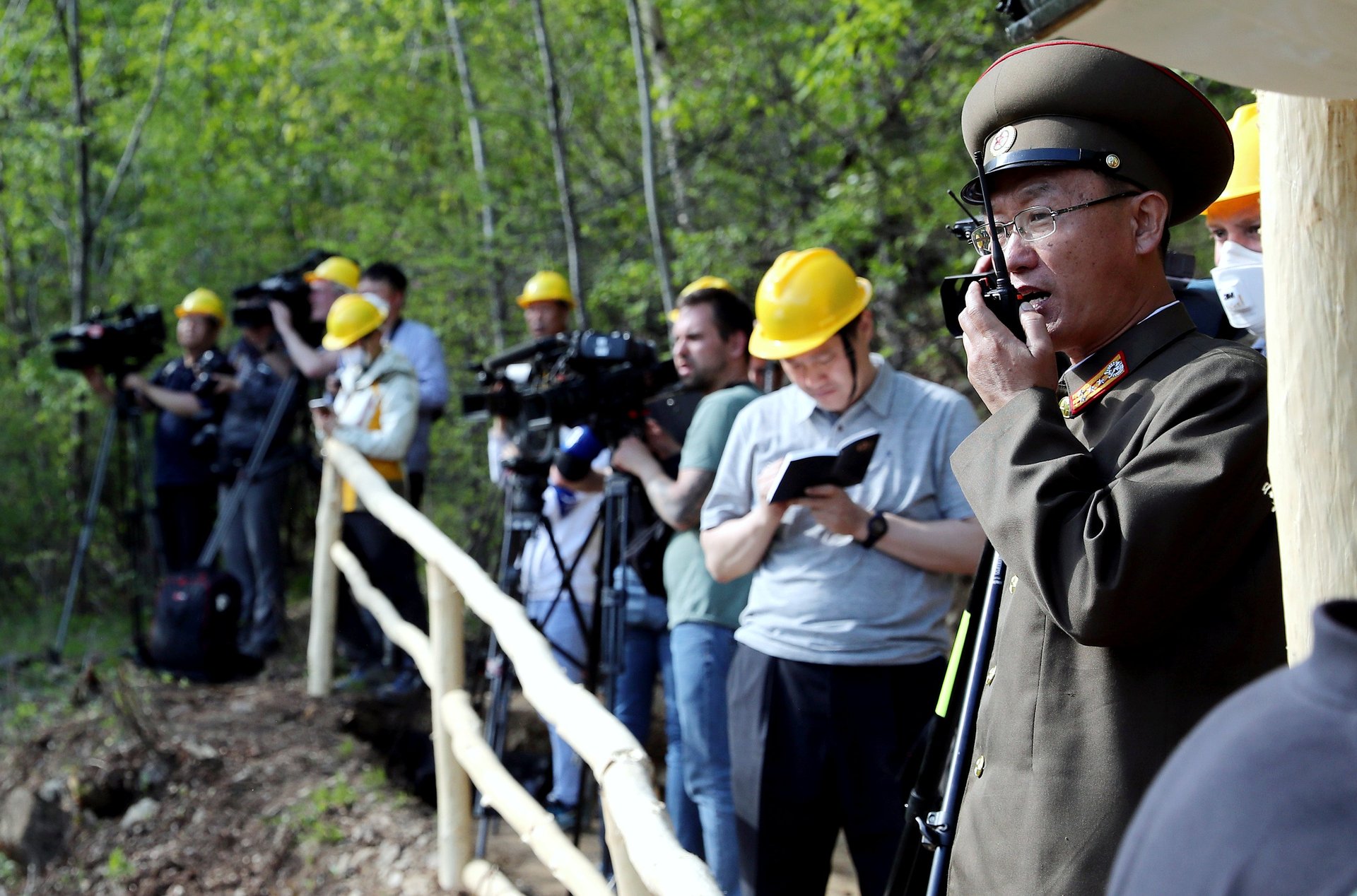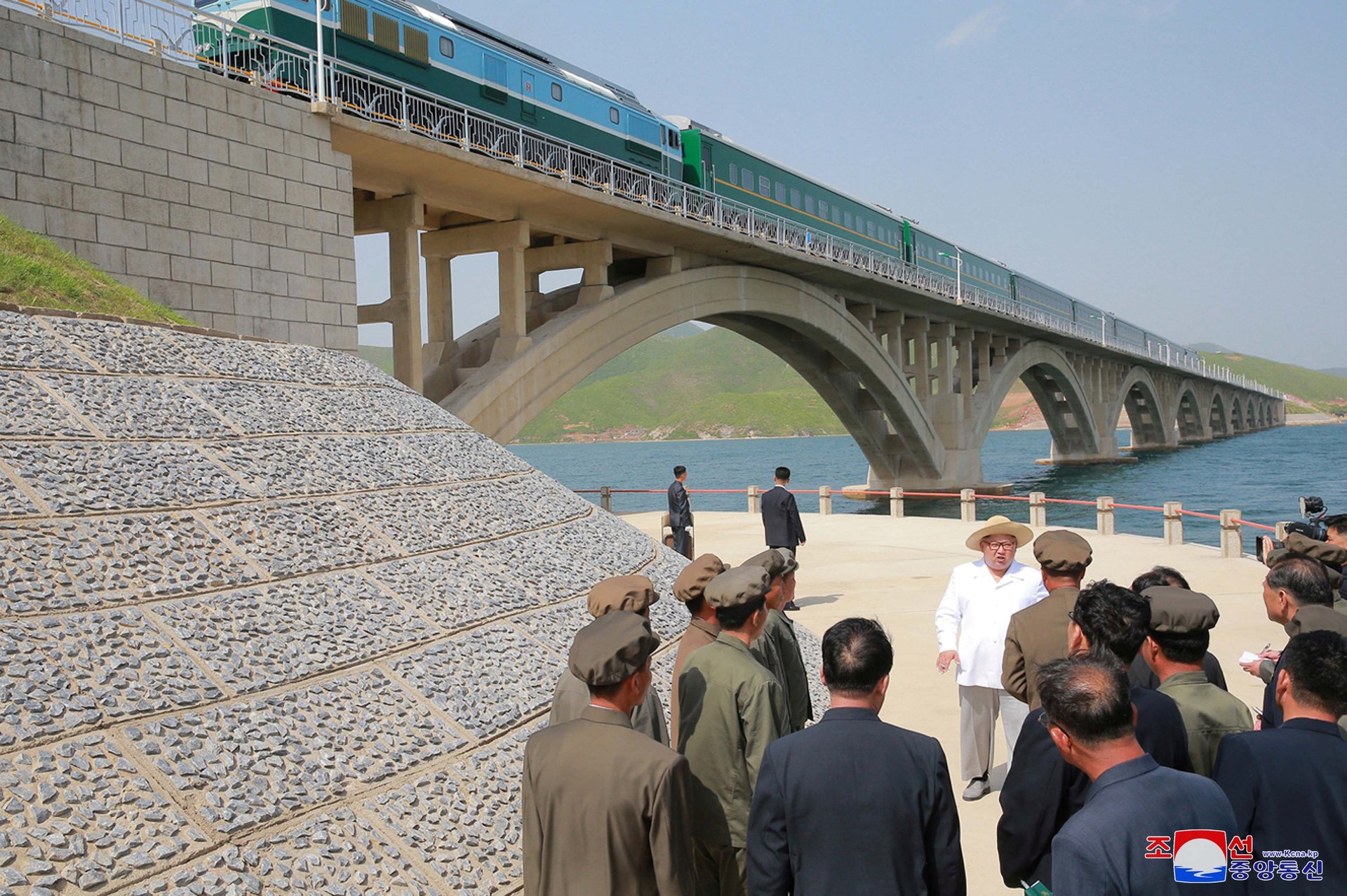The 24 hours that doomed the Trump-Kim summit
Since Donald Trump announced in a bizarrely worded letter addressed to North Korean leader Kim Jong Un that he didn’t think it was a good idea to meet on June 12 in Singapore after all—even if the commemorative coins had already been minted—reporters have tried to pinpoint how things unraveled.


Since Donald Trump announced in a bizarrely worded letter addressed to North Korean leader Kim Jong Un that he didn’t think it was a good idea to meet on June 12 in Singapore after all—even if the commemorative coins had already been minted—reporters have tried to pinpoint how things unraveled.
This week, North Korea and South Korea were having eventful days of their own, preparing for the summit that wasn’t going to happen. Looking at the hours leading up to and just after Trump’s announcement offers a glimpse of just how far apart the three countries remain. (Times in US eastern time unless otherwise noted.)
Wednesday May 23
9:34am
Noon Before heading to Joint Base Andrews via helicopter, and then on to New York for a roundtable on immigration, Trump is extremely vague when asked if he’s committed to the summit. “Well, we’re going to see what happens. On Singapore, we’re going to see. And it could happen. It could very well happen. But whatever it is, it is. We will know next week about Singapore. And if we go, I think it will be a great thing for North Korea,” he tells reporters. “Someday a date will happen. It could very well be June 12th. Someday a date will absolutely happen. It could very well be June 12th. We’ll see. We’ll know next week.”
Around then, South Korean president Moon Jae-in touched down in Seoul after meeting with Trump in Washington to keep the summit on track. Moon’s office says the two leaders “vowed to work together to make US-North Korea summit possible as scheduled on June 12.”
A Trump-Kim meeting had begun to look increasingly shaky the week earlier, after North Korea’s new diplomatic tone turned prickly in response to comments from members of the Trump administration suggesting the US might adopt the “Libya model” for denuclearizing North Korea. At his fourth meeting with Moon, Trump had cast doubt on whether the summit would go ahead.
4:30pm Trump arrives at the Lotte New York Palace Hotel—owned by a South Korean conglomerate—for a campaign fundraiser, where his motorcade was met by protesters, including a mariachi band.

Around the same time, foreign journalists arrive in North Korea’s North Hamgyong province after an overnight train journey from Wonsan to witness the shutting down of the country’s only known nuclear test site, at Punggye-ri. They will remain near the test site for most of the next 12 hours.

Around 8:30pm New Yorker staff writer Susan B. Glasser talks with an administration official who tells her the odds of the summit happening on June 12 were 70-30 in favor. But in the next hour or so, North Korea puts out an even more bellicose statement than the previous week’s one. It called US vice president Mike Pence a “political dummy.” It also makes a harsh nuclear threat against the US: “We can also make the US taste an appalling tragedy it has neither experienced nor even imagined up to now.”
10pm White House officials discuss cancelling the summit in earnest in Washington DC, according to NBC News and the Washington Post. Trump, Pence, secretary of state Mike Pompeo, chief of staff John Kelly and national security adviser John Bolton are involved in those talks, but defense secretary James Mattis isn’t, according to NBC.
In South Korea, Thae Yong Ho, one of the highest-ranking North Korean officials ever to defect, resigns from his position at a think tank affiliated with South Korea’s spy agency. Thae, a former diplomat in London who defected in 2016, had last week released a memoir hugely critical of the Kim family, and was denounced by Pyongyang as “human scum” over the book’s publication. Thae emphasized that his decision to quit was a voluntary one, and that he had not been pressured. In recent months he had reiterated his doubts over Kim’s intentions.
And in North Korea, leader Kim Jong Un inspects a railway connecting Koam and Dapchon, crossing a bay.

Thursday May 24
3:20am North Korea “dismantles” its Punggye-ri test site. The explosion of the tunnels at the test site happens at 4:20pm local time, though reports only trickle out hours later.
7am (8pm in North and South Korea) A second round of calls begins, according to senior White House officials, convincing Trump to walk away from the summit. Bolton was apparently key in that decision, some officials tell NBC. Mattis now is looped in (paywall).
8:20am The State Department sends a note to reporters about the positive talks Pompeo has been having with Asian counterparts in preparation for the summit.
Trump dictates his break-up letter directly to Bolton, a Republican senator later tells reporters, after a meeting at the White House.
9:43am The break-up letter goes to the North Koreans. It reads in part:
I was very much looking forward to being there with you. Sadly, based on the tremendous anger and open hostility displayed in your most recent statement, I feel it is inappropriate, at this time, to have this long-planned meeting. Therefore, please let this letter serve to represent that the Singapore summit, for the good of both parties, but to the detriment of the world, will not take place. You talk about your nuclear capabilities, but ours are so massive and powerful that I pray to God they will never have to be used.
Congress and key allies don’t get advance notice. Some North Korean officials only learn of the cancellation from the foreign journalists at Punggye-ri, such as CNN’s Will Ripley.
Not long after, Trump tweets about his decision.
Trump moves on to other business, including signing a bill to loosen financial restrictions imposed after the 2008 recession. Pompeo has a budget hearing before the Senate Foreign Relations Committee soon after the announcement, where he is ribbed by senators: “I have a non-refundable ticket to Singapore, what am I supposed to do with that?”
It is now very late in South Korea, but Moon nevertheless convenes an hour-long emergency meeting. “[We] are trying to figure out what President Trump’s intention is and the exact meaning of it,” presidential spokesman Kim Eui-kyeom says.
They didn’t appear to be bantering.